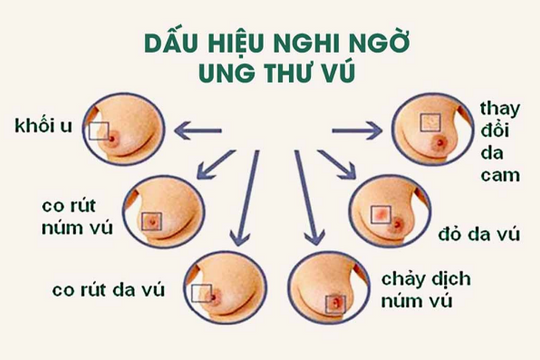Good news for women with breast cancer
The FDA has approved the first drug to treat women with advanced breast cancer caused by the same gene mutation as famous actress Angelina Jolie.
 |
| Actress Angelina Jolie had a double mastectomy after testing positive for the BRCA1 mutation. |
BRCA gene mutations (also known as the “Jolie gene,” after actress Angelina Jolie revealed that she had a double mastectomy after testing positive for BRCA1) are particularly susceptible to cancer, significantly increasing the risk of developing breast tumors by 12–90%.
While the gene does not increase the aggressiveness of the disease, it does open up a unique opportunity for doctors to target the tumor with their own arsenal.
Last Friday, after decades of research and development, the FDA approved AstraZeneca PLC's Lynparza for patients with BRCA gene mutations who have received chemotherapy.
The gene-targeting drug is the first in a relatively new class of drugs for ovarian cancer called PARP inhibitors to also be approved to treat breast cancer.
PARP inhibitors prevent cancer cells from repairing their DNA errors, causing the cells to die or tumors to slow or even stop growing.
AstraZeneca said Lynparza treatment would cost $13,886 (about 320 million VND) per month without insurance.
Side effects are less severe than chemotherapy, but can include serious side effects such as leukemia and bone marrow cancers.
Experts around the world have called the move a “breakthrough”, showing it is possible to use drugs tailored to a patient’s genetic makeup to target cancer’s weak spots.
Professor Andrew Tutt, Director of Breast Cancer Now Cancer Research UK, said: "We welcome the FDA approval of olaparib for treating advanced cancer in women with inherited BRCA1 or BRCA2 mutations. This is good news for women with this uncommon but important type of breast cancer, many of whom have already taken part in clinical trials."
The findings come after recent research into the gene, which could make BRCA-mutated breast cancers more manageable and treatments or prevention less invasive.
BRCA-mutated breast cancer is no more dangerous or aggressive than any other form of the disease, research conducted by the University of Southampton concluded on Thursday.
Until now, most women with the gene mutation would have had both breasts removed as soon as the cancer was diagnosed, because doctors believed the cancer was so aggressive.
That may now change, as research has shown that less invasive “breast-conserving” surgery, which removes only the tumor, is just as safe.
A study of 2,700 women found that women with BRCA gene mutations had a 97% chance of living two years after diagnosis, compared with 96.6% for other breast cancer patients.




